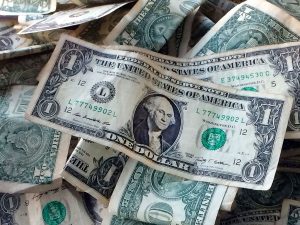Why target-date funds are great IRA investments
Why do target-date funds make ideal IRA investments?
Here to discuss this topic is Jason Kephart, a senior principal with Morningstar’s manager research team. The interview has been edited for length and clarity.
Q: Target-date funds tend to be great investments for an IRA, because if investors choose the target-date fund that fits their time horizon, then that IRA effortlessly fits in with the rest of a portfolio. Delve into that.
A: Target-date funds are a great set-it-and-forget-it for investors who don’t want to spend a lot of time thinking about: How much of my portfolio should be in stocks versus bonds? What funds should I pick to fill those buckets?The target date takes all that off the hands of investors.
The other beauty is regular rebalancing, so your portfolio doesn’t get out of whack. As you age and get closer to retirement, your portfolio should be getting a little bit more conservative—because you don’t want to have a lot of risk at retirement, but you do want to have a lot of risk when you’re young and have a huge time horizon in front of you.
This takes care of all that for you, so it’s a great option for anyone who doesn’t want to spend a lot of time managing their investments.
Q: Vanguard was in the headlines lately after making some sizable distributions from some of its target-date funds. Although Vanguard’s distributions may have been big, target-date funds, in general, aren’t great investments for taxable accounts. Talk about why.
A: They’repredominantly designed for 401(k) plans, which is mostly where the assets are. And tax-advantaged accounts, like an IRA, aren’treally thinking about taxes. Sothe bond portfolio, which tends to be taxable bonds, that income is taxed at an ordinary rate.
Also, we talked about rebalancing, which is when you sell your winners and buy your losers. Anytime you’re selling your winners, that’s going to trigger a taxable event. In a 401(k) or an IRA, you don’t have to worry about those. In a taxable account, it could be kind of a headache.
Q: A lot of investors already have a relationship with a brokerage or an asset manager. Can they feel comfortable going with whomever they already have that relationship with? Or does it pay to shop around?
A: It always pays to look at your options, but I would caution that a lot of brokerages will take steps to steer you toward their own offerings. And that may mean additional fees may be charged if you pick a different target-date fund, which couldkind of kill the value proposition.
What we’ve seen with target-date funds is that the return differences can be narrow, soadditionalfees could make a significant difference.
Q: What are some key questions that investors should be asking before they invest in a target-date fund?
A: You want to know what the glide path looks like and whether it fits your risk tolerance at different stages in life, which could be difficult to know early on.
A 25-year-old probably isn’t going to have a good sense of what their risk tolerance is going to look like at 60, but the shape of the glide path really does matter.
You also want to understand the underlying funds. Are they index funds, actively managed funds, or a combo of both? Maybe you have a preference.
The other thing you want to think about is fees. Fees matter, particularly in an IRA where you may not have the benefit of getting the cheapest share class like you would through a company 401(k).
____
This article was provided to The Associated Press by Morningstar. For more personal finance content, go to https://www.morningstar.com/personal-finance
Jason Kephart is a senior principal of multi-asset strategy ratings for Morningstar. Susan Dziubinski is an investment specialist at Morningstar.
Jason Kephart and Susan Dziubinski of Morningstar

